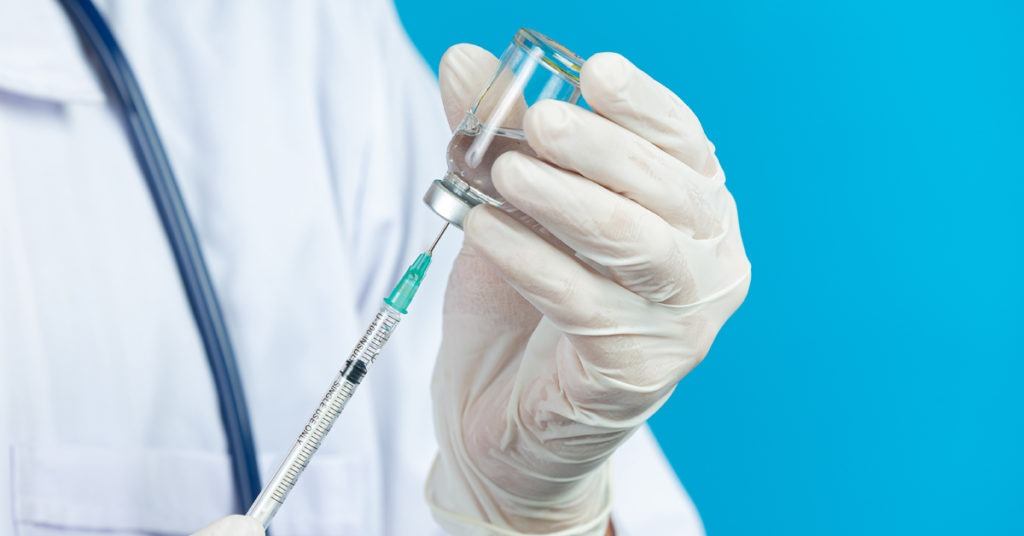Can You Treat COVID-19 with Ivermectin and Lianhua?

Coronavirus Disease 2019 (COVID-19), a viral illness caused by Severe Acute Respiratory Syndrome Coronavirus 2 (SARS-CoV-2), made a record-breaking pandemic that affected millions of people around the world. To date, the Philippines has reported over 904,285 COVID-19 cases, of which 199,121 are active.
Moving forward to its new normal state entails finding an evidenced-based clinical management which includes discovering appropriate and efficient therapeutic drugs. Two medicines are now in folly craze against the said virus – Ivermectin, an anthelmintic drug used to treat parasitic infections, and Lianhua Qingwen, a Chinese traditional herb that is known to treat influenza virus.
Ivermectin
Ivermectin, on the other hand, is an FDA-approved anthelmintic drug that paralyzes and kills parasites. It is commonly used in animals for the prevention and treatment of heartworm and acariasis, although it can also be taken by humans in certain indications such as head lice, scabies, river blindness, strongyloidiasis, trichuriasis, ascariasis, and lymphatic filariasis. Ivermectin has been connected to COVID-19 treatment due to its previous studies that it can inhibit viral activity of the causative virus in vitro, meaning outside the living organism that is usually done in a laboratory setting. According to the National Institutes of Health, Ivermectin studies done in vitro were “able to effect -5000 fold reduction in viral RNA at 48 hours.” It has been noted for its anti-viral activity in vitro not only for SARS-CoV2 but also for other viral illnesses such as dengue, yellow fever and Zika virus. Aside from its anti-viral load, Ivermectin is also shown to have anti-inflammatory properties which makes the researchers speculate that it can be valuable in treating COVID-19 patients.
Despite the said claims, there are still no documented reports in the clinical benefits of Ivermectin when indicated on these viral infections. There are a lot more studies needed to be conducted for a more scientific proof of these inferences particularly in implementing it in vivo, meaning inside a living organism (i.e. mice, humans). When further studies in humans are made possible, it is also recommended to evaluate Ivermectin as a complementary drug to other antiviral drugs that are proven to treat COVID-19 to maximize its efficacy, and later on, can significantly improve recovery time.
Lianhua
Lianhua Qingwen, is a conventional Chinese medicine preparation used to treat respiratory infectious diseases including severe acute respiratory syndrome in China. It is a product of “reduction and addition of combined Maxing Shigan decoction and Yin Qiao powder”, and is a widely recognized antiviral agent in China. It is made up of 13 herbs. Lianhua is documented to alleviate “heat-toxin invasion of the lungs, including symptoms such as fever, aversion to cold, muscle soreness, stuffy and runny nose”, and has been used for such symptoms in China for more than ten years.
Since Lianhua has already been an identified drug specifically for flu-related viral illnesses, emerging data revealed that it can also be used to treat COVID-19 infection. Data gathered by the National Center for Biotechnology Information showed that Lianhua as one of the traditional Chinese approved medicines for treatment of COVID-19, has been formally accepted “due to its antiviral, lung protection, and regulation of inflammation response as well as immune regulation actions.” Current scientific evidence suggests that adding Lianhua combined with other antiviral drugs demonstrates advantageous effects in treating COVID-19 as compared to no Lianhua at all, signifying that it can be added as a clinical management approach for COVID-19.
However, strong valid evidence necessitate further clinical trials due to the scope and limitation of the study. One is to examine the effects of Lianhua combined with other antiviral agents in a larger population, in other countries aside from China, and in its suitable classification according to its specific target group (severity, comorbidities, etc.) Another recommendation is an unbiased study about the herbs incorporated in Lianhua to specify the mechanism of action in each herb and how it affects explicitly in the inhibition of virus proliferation. Potential adverse reactions must also be taken into consideration as Lianhua has been linked with gastrointestinal-related symptoms such as diarrhea and abdominal discomfort. With an intensive study of each herb, one may classify to which ingredient it is associated with a particular symptom and in the future, improve the component of the drug.
Conclusion
With all the information regarding Ivermectin and Lianhua, the Food and Drug Administration keeps reminding the general public to be responsible enough in taking these medications. Both are prescription medications accepted in the Philippines but are not yet official therapeutic drugs for COVID-19. If you have warning signs of COVID-19, you can have online consultation with Mypocketdoctor. You may contact Mypocketdoctor through their Facebook page and/or chat with their agents on their website www.mypocketdoctor.com. Likewise, you may check the Frequently Asked Questions (FAQs) through this link.
Remember, even though initial researches were already made known, further studies and clinical trials for Ivermectin and Lianhua are still currently ongoing and under development.
References:
www.covid19treatmentguidelines.nih.gov
www.ncbi.nlm.nih.gov
www.hindawi.com/journals
